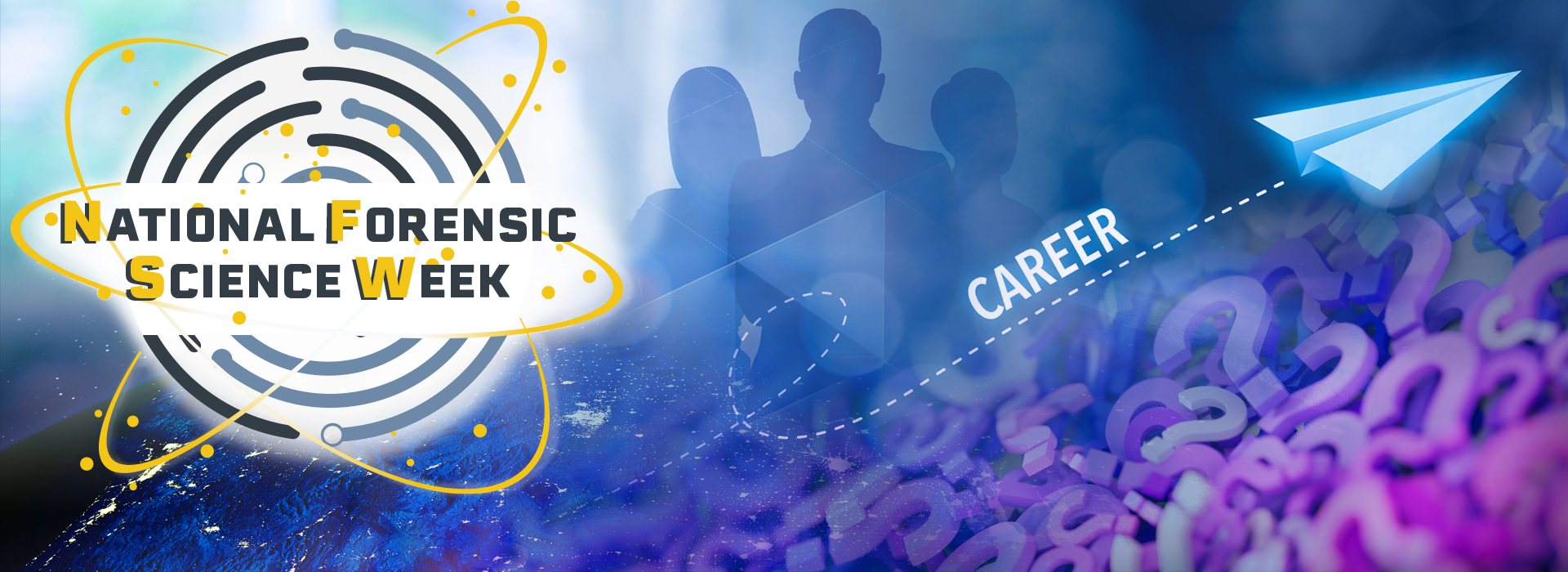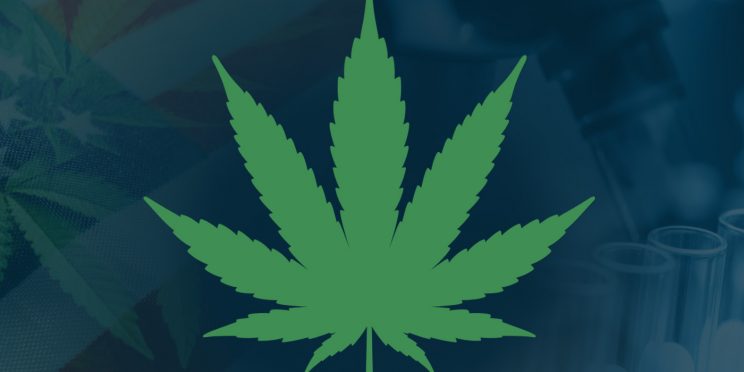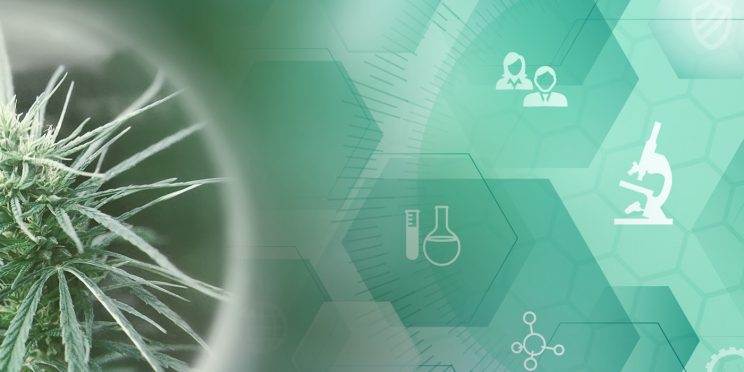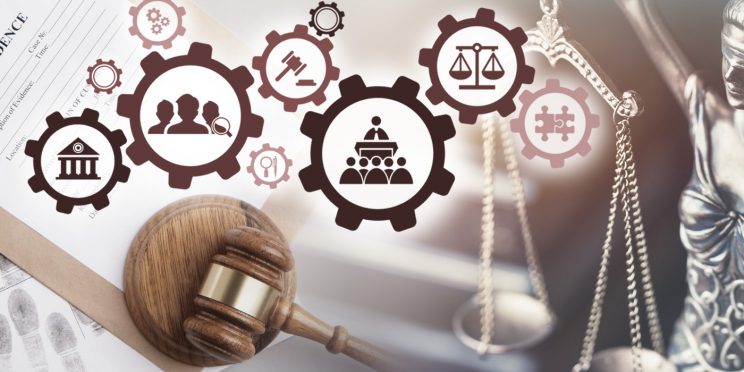Overview
The FTCOE has conducted a variety of written interviews with forensic professionals in various stages of their careers. From recent graduates to retired professionals, the FTCOE showcases real-world perspectives on the current state of forensic science.
Read along to see how practitioners have been affected by the pandemic, to learn about some of the biggest advancements in the field, and to engage with fellow professionals in the various fields of forensic science.
This is My Story: An Interview with a Retired Forensic Professional
John Grassel, M.S.
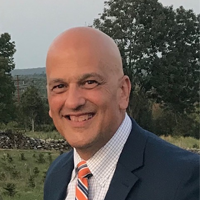
John Grassel holds a Master of Science in Biomedical Forensic Science from the Boston University School of Medicine and is a Forensic Science Program Manager at RTI International. In this role, he leads cutting-edge, technology-driven efforts to support basic and applied research serving the criminal justice and forensic science communities. Mr. Grassel currently serves as a scientific lead of NIJ’s FTCOE, which supports the forensic science and criminal justice communities with transitioning research into practice. Mr. Grassel is certified by the International Association for Identification (IAI) as both a Certified Footwear Examiner (CFWE) and Certified Senior Crime Scene Analyst (CSCSA) as well as a Certified Forensic Mapping Specialist and Public Safety Laser Scan Technician. Mr. Grassel is a Past President of the New England Division of the IAI, the current Vice President of IAI and serves as the IAI chair on the ISO-US TAG. In addition, Mr. Grassel serves as the Chairman of the International Association of Chiefs of Police (IACP) Forensic Science Committee and on the FBI Rapid DNA Task Force Working Group and the OSAC Footwear and Tire Subcommittee. Prior to joining RTI, Detective Lieutenant Grassel served as the officer in charge of the Rhode Island State Police, Forensic Services Unit.
What forensic science disciplines did you work in throughout your career?
I worked in a variety of forensic disciplines. I was a crime scene investigator (and later supervisor), a footwear/tire tread analyst, and a fingerprint examiner. I was also a bloodstain pattern analyst and performed shooting reconstruction. Like many forensic professionals in smaller agencies, I performed multiple roles, so I was also a Quality Manager for a few years.
Forensic science has grown and changed a lot in recent years. What are some of the greatest advancements you’ve seen over the course of your career?
Yes, this is the question that does make me feel a bit old! For one, technology has made great strides. When I started, we documented crime scenes with film cameras and with video cameras that were so large that your back would hurt at the end of a long scene. In addition to the constantly improving digital cameras, we can now provide 3D scans of crime scenes, which are amazing. For fingerprint analysis, it was entirely done under the glass - there were no digital images and Photoshop was not used for enhancement or courtroom presentations. I would like to see these sorts of technological improvements continue, and I have no doubt they will. I would also like to see more agencies, especially those crime scene units, embrace the idea of adopting standards such as those produced by the OSACS and strive for accreditation. Funding is always an issue in forensics, so I would also like to see agencies and labs receive increased funding or grants.
Is there anything that looking back on your career, you wish you would have done differently?
I think as a profession we can always improve on outreach to the minority community. We should strive to promote forensics and develop young scientists who may not have had the same opportunities as others to embrace and succeed in this field.
What do you do to stay engaged with the forensic science community and keep up to date with the latest news and advancements in forensic science?
My transition from a public laboratory to the Center for Forensic Science at RTI has certainly “paved the way” for continued, constant engagement. In addition, I stay current with my external forensic committee work. I also a point to try and attend as many pertinent conferences as I can and keep up with developments in the field by reading scientific journals.
Is there anything that you miss about your former career?
Without a doubt, the people. I worked with some great, dedicated individuals that I am extremely proud to have supervised.
Do you have any advice for aspiring or early career forensic professionals?
Take advantage of every learning opportunity you have – whether from formal training or observing others in the field. For future professionals or for those just starting out I would say keep an open mind. The forensic field is so varied - don’t close yourself off to other aspects you may not have experienced yet. In the long list of things to remember when you start in this field - try and leave each place you work better than when you came, and your integrity should always be above reproach.
This is My Story: An Interview with an Advanced Career Medicolegal Death Investigator
Kelly Keyes, D-ABMDI
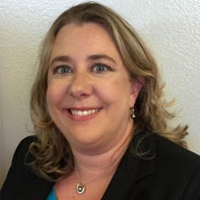
Kelly Keyes joined RTI International in 2021 as a Research Forensic Scientist III in the Forensic Science Translation and Implementation program. Prior to joining RTI, she had 24 years of experience working as a medicolegal death investigator (MDI) in a large metropolitan coroner’s office at the Orange County Sheriff Coroner Department (OCSD), in all divisions of the office, including over 10 years as a supervising Investigator. Kelly is a Board-certified MDI with the American Board of Medicolegal Death Investigators (D-ABMDI). Kelly has investigated and supervised thousands of death investigations of all types and regularly interacted with forensic pathologists to prepare death certificates. She also oversaw the unidentified decedent cases for her office, helping solve several older cases with newer technologies like genetic genealogy. Ms. Keyes has trained and worked with MDIs from other offices through her work on the executive committee of the International Association of Coroner and Medical Examiners (IACME) where she is currently the Chair of the Board of Directors. She is also a member of the National Association of Medical Examiners (NAME), the American Academy of Forensic Sciences (AAFS), the California State Coroner Association (CSCA), and an accreditation auditor of MDI offices through IACME. Ms. Keyes has served on the MDI subcommittee of the National Institute of Standards and Technology (NIST) Organization of Scientific Area Committees (OSAC) since its inception and is currently the Chair. She has served as a subject matter expert for the Centers for Disease Control (CDC) and the National Institute of Justice (NIJ) on multiple projects relating to investigating and certifying disaster-related deaths, development of the next generation of the Electronic Death Registration System (EDRS), Improving the Completeness and Specificity of Drug Information on Death Certificates, MDI Stakeholder’s Meeting, and updating the Guide for the Scene Investigator.
How were you introduced to the field of forensic science and when did you first recognize your desire to pursue a career in forensic science?
I was introduced to forensics by the TV show Quincy MD, and since I loved biology classes in school and detective mysteries, it seemed a perfect fit for me. A family friend had a connection at the Dade County Medical Examiner’s Office, and when I was 16, he took me to see my first autopsies. He probably remembers those better than I do - he’s 92 years old and I just visited him last week and he recalls vivid details about each of the autopsies we saw. After graduating high school, I started as a volunteer at the coroner’s office assisting with autopsies, and I did that for two summers in college.
What type of work you are responsible for in your current position?
I retired from the coroner’s office five months ago and took a position as a Research Forensic Scientist at RTI. Interestingly, the last call that I took on my last shift was a call notifying us of a mass shooting, but I knew the investigation would be in very capable hands as I left for my new job. In the last few years at the coroner’s office, I had the opportunity to work with RTI on a couple of projects and interact with the staff, and I really admired the work they were doing to advance MDI around the country. Following the NAS report, MDI has been increasingly recognized for its importance to so much that is happening in society today, from COVID to in-custody deaths to the opioid epidemic. I now have the opportunity to collaborate with so many of the diverse professionals at RTI on a multitude of MDI-related projects from helping to ensure better collection of data by MDI offices, to analyzing specific data from offices, to working on providing training opportunities.
What are some of the things that you most enjoy the most about your position?
One of my favorite things about being a medicolegal death investigator was the diversity of the work - you never knew what your day would hold. From a plane crash to a homicide to an unidentified decedent or difficult to locate family member, each day was a unique challenge, and no two days were the same. At RTI, I have the opportunity to continue to have variety - although with a bit more predictability - and I continue to love that variety in my days. The only thing I really miss are the families - as a medicolegal death investigator you have the opportunity to interact with people at potentially the worst time in their lives, and you can’t necessarily make it better, but you sure can avoid making it worse. I was always so touched by how many families took the time to write a thank you note after I’d handled a loved one’s death - you really had a chance to make a HUGE impact in someone’s life. I do have similar opportunities to make a difference here at RTI, just on a different level. Rather than helping one family at a time, I’m trying to help to improve medicolegal death investigation around the country for ALL families, and I’m helping to use the data that MDI offices collect from these tragedies so that it can make an impact at a much higher level. It’s a translation of what I’ve done on a local scale for all these years to a broader, national scale.
How did the pandemic affect your work as a medicolegal death investigator?
Between the pandemic and the opioid epidemic, it was rough last year. Not only were caseloads up (one month we had a 125% increase in case load), but we were taking extra precautions with more PPE, there were delays in case turnaround times as we waited for COVID tests, and as the toxicology lab was more and more inundated, those times were also long. We had to deal with figuring out how to store and manage excess decedents as mortuaries and crematories were overwhelmed with the volume. We were fortunate that we had a leader with the foresight to plan especially for this last problem, and to ensure we had adequate PPE and COVID test kits. Some MDI friends in other offices were not so lucky. We had to remain fluid and flexible and really learn to adapt, more so than ever in the prior 23 years.
Have you experienced any challenges with employee recruitment or retention in your workplace?
I think one of the biggest issues related to staffing was getting people in to fill open positions. We had no shortage of applicants, but often they didn’t even have a clue what we did as there are almost no formal training programs in medicolegal death investigation. That was coupled with a lengthy hiring process. Since we were peace officers, it required a law enforcement background check that was not insignificant - many a promising applicant failed their background checks. And then once we did hire someone, it was usually a completely supervised 6-month hands-on training process, and then another six months of close monitoring before someone was really capable of being on their own. We usually said it took four to five years until someone really could be expected to handle anything that came their way without assistance or guidance from their more senior colleagues and supervisors. One thing that I was glad to have had a hand in developing to help with this was an internship program for our office. We offered internships in investigations as well as for autopsy assistants. This allowed us to not only give aspiring MDI and forensic pathologists an opportunity to experience the job, but we could also begin training them in the basics of the job. And when we were lucky, they would eventually get hired and have a leg up and decrease the training times. We had some incredible interns who went on to become incredible employees.
What advice would you give to an aspiring forensic professional?
Given that one thing we had issues with was getting people to pass a background check, I’d say keep your nose clean and make good decisions - marijuana usage or a DUI can prohibit you from getting a job. I advise that medicolegal death investigation requires some knowledge of forensics, criminal justice, and medicine. So if you are studying forensics, also take medical terminology and anatomy classes. If you are studying biology or chemistry, also take forensics and/or criminal justice classes. And since medicolegal investigation requires talking to people and providing a lot of customer service, I always loved seeing a candidate that had a customer service background. You may think that that job at the bank or the coffee shop isn’t relevant to what you want to do, but I assure you it can be! It’s a fun job - never the same thing twice and you never knew what your day was going to hold, and if I had to go back and do it all over again, I’d either become a forensic pathologist or do exactly what I did as a medicolegal death investigator.
This is My Story: An Interview with a Recent Ph.D. Graduate
Heidi Eldridge, Ph.D.
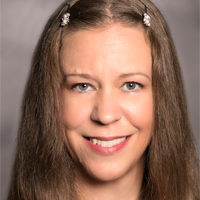
Dr. Heidi Eldridge has worked in latent prints for over 15 years. Heidi is a Certified Latent Print Examiner (CLPE) and Board of Directors member with the International Association for Identification (IAI), is a peer reviewer for numerous peer-reviewed scientific journals and was a member of the Scientific Working Group on Friction Ridge Analysis, Study and Technology (SWGFAST). She is a member of the Organization of Scientific Area Committees (OSAC) for Friction Ridge Subcommittee and current Chair of both the Academy Standards Board friction ridge consensus body and FEPAC. Heidi has taught latent print topics for over 10 years and recently earned her Ph.D. in Forensic Science at the University of Lausanne. After 11 years as a practitioner, she is now a Research Forensic Scientist at RTI International.
How were you introduced to the field of forensic science and when did you first recognize your desire to pursue a career in forensic science?
I started out as a theatre major. I really wanted to be an actress or stage manager. But I’ve always been a really well-rounded person with diverse interests in both science and humanities. When I finished college and realized I wasn’t going to make it professionally in the theatre, I fell back on my love of science and started to pursue Biology without any particular goal in mind. When I was near completing my master’s degree in Biology, I started thinking about what professions I could pursue, and that’s when I remembered a summer camp in forensic science that I had taken and loved way back during the summer after 8th grade. That’s when I started exploring my options in forensic science. Once I settled on that in my mind, there really was no other option – I spent 2 years applying for (and being rejected from) forensic science jobs before I finally got my foot in the door. I did not apply for any other kind of scientific work during that period because I knew I wanted to be a forensic scientist.
How long have you been working in the field of forensics? What led to your decision to return to school for your Ph.D.?
I started working in forensic science in 2004, where I started as a drug chemist. After about a year and a half in drugs, they started cross-training me in latent prints. For a while, I did all the drug analyses and latent print processing on cases that had requests for drug identification as well as identifying the prints of anyone who had touched the packaging. It was probably about 5 or 6 years into my career when I started thinking that I would like to go back to school to get a Ph.D. in forensic science because I started being really drawn to research questions about the underlying scientific foundations of forensic science, latent prints in particular.
Did the pandemic affect your studies or research activities while pursuing your Ph.D.?
My Ph.D. in Lausanne was a little different from most programs here in the US because it was 100% research based. In other words, I didn’t have to take any courses. Because of that, the pandemic didn’t really affect my activities directly, but it did affect my timing. Everything just slowed down during COVID. It took longer to get the last bits of my research wrapped up and my dissertation written. And, of course, it completely killed my travel plans. So the final trip I had planned to go work with my advisor was nixed, and the final data analysis and write-up all had to be done remotely. The biggest bummer was that my dissertation defense had to be delivered remotely, so I missed out on the final trip to campus to see my classmates in person and celebrate with them!
What type of work are you responsible for in your current position?
Currently, I am a research forensic scientist at RTI International. For the most part, that means I’m doing research on forensic science questions. I am currently principal investigator (PI) or co-PI on three federally funded grants related to fingerprint topics, and I wrapped up another one last year. Other things I spend my time on include writing grant proposals for future research, presenting the results of my research at various educational conferences, and serving on numerous committees and boards, such as the IAI board of directors, the OSAC and ASB friction ridge groups, FEPAC, and as a peer reviewer for both the Journal of Forensic Identification (JFI) and Forensic Science International (FSI).
What are some of the things that you most enjoy about your position?
The thing that I most enjoy is having the freedom to pursue research topics that interest me and to spend time serving the forensic science community through conferences and service on committees.
What advice would you give to an aspiring forensic professional?
Here are my two biggest pieces of advice for aspiring forensic scientists:
1. Keep an open mind. Forensic science is a rich and still developing field. Look for opportunities in lots of different areas and be open to change. There is no one right way to get into this field (and it can take a long time to land a spot!). Just take any feedback you get along the way, stay curious, and keep at it.
2. Learn public speaking. This is a surprising barrier to many. You will be expected to testify as a forensic scientist, and also sometimes to give tours and presentations to groups. Get comfortable speaking in front of others. Take a drama class. Join the debate club or Toastmasters. Do something that gets you comfortable thinking on your feet without getting flustered.
This is My Story: An Interview with an Advanced Career Forensic Toxicologist
Ruth Winecker, Ph.D.
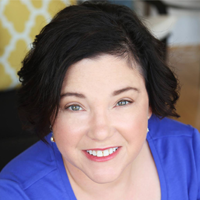
Dr. Ruth Winecker is the Director of the Laboratory Quality Assurance Program (LQA) at RTI International. She is an American Board of Forensic Toxicology (ABFT)-certified forensic toxicologist with more than 25 years' experience in postmortem forensic toxicology, anti-doping, and workplace drug testing. Before joining RTI International, she served as the Chief Toxicologist for the North Carolina Office of the Chief Medical Examiner (NC-OCME) in Raleigh, North Carolina. Starting in 1999, she was responsible for all aspects of this ABFT-accredited laboratory, including analytical testing, records maintenance, and review of testing for >11,000 medical examiner cases per year. Dr. Winecker has published more than 80 articles, book chapters, and abstracts related to forensic toxicology. She is an active member of the American Academy of Forensic Science (AAFS), the Society of Forensic Toxicology (SOFT), and The International Association of Forensic Toxicologists (TIAFT). In addition, she has chaired and co-chaired workshops and presented various topics in the scientific sessions at these annual conferences since 1998 and has served as the President, Vice President, Secretary, and Director of SOFT, as Vice President and Director of AAFS, and Treasurer and Director of ABFT. Currently, Dr. Winecker serves as an appointee of the Organization of Scientific Area Committees (OSAC) Subcommittee on Toxicology and the Academy Standards Board, and on the editorial boards of the Journal of Analytical Toxicology and the TIAFT Bulletin. In February 2019, she accepted the Rolla N. Harger Award for outstanding contributions to the field and practice of forensic toxicology.
How were you introduced to the field of forensic science and when did you first recognize your desire to pursue a career in forensic science?
I was always interested in forensic medicine since I was in middle school. The TV show Quincy MD., Discovery Magazine, detective novels, and science fiction may have played a big part in directing my future interests.
What type of work are you responsible for in your current position?
I am currently the Director of the Laboratory Quality Assurance Program (LQA), which consists of two projects: the National Laboratory Certification Program (NLCP) and the Quality Assurance Reference Materials Group. I support program activities in the areas of scientific research, proficiency testing, regulated laboratory inspection, and other activities as requested by the Substance Abuse and Mental Health Services Administration (SAMHSA).
What are some of the things that you most enjoy the most about your position?
I most enjoy the research activities that are requested by SAMHSA and interacting with our clients, their subject matter experts, and researchers within our program. It is great to have rigorous scientific discussions on a daily basis! I also enjoy working with staff to achieve their development goals.
What types of certifications and continuing education have you completed?
I am board certified fellow (F-ABFT) in forensic toxicology by the American Board of Forensic Toxicology. My certification requires a minimum of 200 hours of continuing education earned during each 5-year requalification period. Conference attendance, publications, leadership in forensic toxicology organizations, and conference presentations all count towards the 200 hours.
How do you disseminate new information and incorporate new techniques, technologies, and best practices into your place of work?
The NLCP is recognized for setting best practices as it is responsible for assisting SAMHSA with setting mandatory guidelines for federal workforce drug testing activities and ensuring that HHS certified laboratories adhere to these standards. Therefore, it is imperative that our staff stay up to date on the newest research and techniques in forensic urine drug testing.
What advice would you give to an aspiring forensic professional?
I would advise aspiring forensic professionals to become members of a professional society in their area of interest. Many of these societies offer low-cost student memberships and discounts to meetings for students or trainees. They often host job fairs as well and some even have mentorship programs. Having a mentor is key to learning the ropes, getting introductions, and receiving encouragement and advice.
This is My Story: An Interview with an Early Career Forensic Scientist
Mikalaa Martin, B.S.
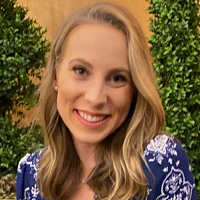
Mikalaa Martin is a Forensic Scientist within RTI International’s Center for Forensic Sciences as part of the Research, Technology, and Evaluation program. She provides subject matter expertise and technical assistance for various multidisciplinary forensic science projects related to the creation of informational deliverables in the form of best practice guidance documents, training content, and data visualizations. She previously worked as a Forensic Evidence Technician in Greenville, SC where she gained practical experience in processing scenes of crimes against persons and property. She obtained her B.S. in Forensic and Investigative Science at West Virginia University where she completed research pertaining to the use of the FARO 3D laser scanner and its practical applications within the field of crime scene investigation and reconstruction. She has also completed research at the Houston Forensic Science Center pertaining to the importance of Blind Quality Control Samples with an emphasis in the discipline of fingerprinting. She possesses practical and educational experience in both laboratory and in-field usage of practices, techniques, and instrumentation along with the application of data analytics and statistical analysis within the forensic science discipline.
How were you introduced to the field of forensic science and when did you first recognize your desire to pursue a career in forensic science?
I have been interested in pursuing a career in forensic science for as long as I can remember. I was introduced to forensic science through my aunt who worked as a Forensic Technician for an agency in Southern California. I was extremely fortunate as my aunt’s agency allowed me to come in and shadow her work within the forensic laboratory where I learned the basic principles of photography, fingerprinting, evidence collection, alternative light sources, and various other investigative techniques at an early age. The moments I was able to spend shadowing my aunt solidified my interest in forensic science, and it became my goal to dedicate my life’s work towards the field. While I was always interested in science, law, and other related foundational subject matter, the biggest draw to a career in forensic science was how all these interests intertwined with service, which is the largest driving force and passion in my life. The ability to wake up every day and have the work I complete positively impact society, serve as a voice for the voiceless, or help a victim through their worst day are things I would not trade for the world, and are continuous motivating factors. I am lucky enough to live my dream every day through dedication to science and service to others.
Did you experience any difficulties finishing your degree or starting your forensic career during a pandemic?
The COVID-19 pandemic impacted my schooling about halfway through the second semester of my senior year. Due to the pandemic, all classes shifted towards a virtual format, at which point my classmates and I were the pioneers for virtual learning within the forensic science program. The forensic science curriculum at West Virginia University focuses on hands-on learning with many practical components, which made the shift to online, non-tangible learning extremely difficult. While COVID-19 did not prevent me from obtaining my degree on time, it was extremely hard to leave my classmates and professors, who I consider to be family, on such short notice. I am very thankful for the 3 ½ years I was able to spend with them and thank them immensely for all they have done for me and their continued support. As for obtaining a job during the pandemic, I did not have too much trouble finding openings, filling out applications, or completing the interview processes. The largest challenge I have faced regarding my job and COVID-19 would be the transition from fieldwork as a Forensic Evidence Technician to my current position as a Forensic Scientist. While the switch from fieldwork to more research-based work was a huge change in direction, the conversion from being an in-person first responder to working from home was the aspect that required the most adjustment.
What type of work are you responsible for in your current position? What do you enjoy most about your job?
I assist on a wide variety of multidisciplinary projects with RTI collaborators (e.g., National Institute of Justice, National Institute of Standards and Technology) and the Forensic Technology Center of Excellence as they relate to forensic science. Whether these projects focus on the management of evidence, the application of forensic techniques to human trafficking, or the DNA methodologies such as touch DNA, there is always at least one connection to every one of my projects. I provide both subject matter expertise and technical assistance to these projects, with the focus of creating deliverable content that will benefit the full forensic science community whether that be through best practice guidance documents or informational learning content for use within the field. The thing I absolutely love about my job is that I learn something new each day through my project work. Whether that be an interesting fact about forensic science or a new technique in the field, I am constantly gaining knowledge through all that I do.
How has the pandemic affected your current position? Are there any pandemic-related changes that you believe will turn into normal practice?
What are some of your career development goals and plans for the future?
Similar to my overarching general life goal, I intend to continue my education and broaden my knowledge on various disciplines and topics throughout the field of forensic science. Participating in additional projects when they become available and eventually obtaining my master’s degree will aid in progress towards this goal. Due to the pandemic, it has given me slightly more free time to brainstorm intentional goal planning towards my future. One of the major goals I have is to merge the principles of ‘green science’ with forensic science through whatever avenues or research opportunities that are available. I am very passionate about the environment, sustainable and intentional living, and the implementation of eco-friendly practices into everyday life. I would love to have the opportunity to merge this passion with forensic science to lead to more sustainable and eco-conscious discussions, workflows, instrumentation, practices, and protocols being developed and implemented within various disciplines, including crime scene investigation and latent fingerprint processing/development. If given the opportunity, I would like to act as the primary author for a publication related to this topic.
Do you have any advice for aspiring or early career forensic professionals?
Involve yourself in any and every opportunity available to get experience and build connections within the field. Even if there is an internship, class, or other opportunity which is not directly related to your specific interest in forensic science, never turn down any opportunity as you never know where it could get you or who you will meet through it. There is always more to learn and participation in any opportunities available to you can only strengthen your understanding and knowledge on the discipline. The field can oftentimes be intimidating and wear down your confidence and mental and physical well-being; however, always keep your reason for pursuing forensic science at the forefront of all that you do, and it will see you through any obstacle you may encounter during your journey.
This is My Story: An Interview with a Recent Forensic Science Graduate
Gabby DiEmma, M.S.
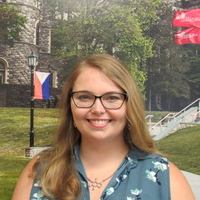
Gabby DiEmma is a recent graduate of Arcadia University. She has a Bachelor of Science in Chemistry with minors in French and Psychology, and a Master of Science in Forensic Science from the FEPAC-accredited program at Arcadia University. During her six years at Arcadia University, she worked as a student researcher, laboratory assistant, advanced tutor with a specialty in organic chemistry, and a graduate assistant for the MSFS program. She completed her internship at Rutgers University, documenting the human remains and artifacts recovered from LaGrange Place in Philadelphia, PA, as part of the Arch Street Project. After graduation, she joined RTI International’s Forensic Science Translation and Implementation program in mid-June of this year.
How were you introduced to the field of forensic science and when did you first recognize your desire to pursue a career in forensic science?
As cliché as it is, growing up I loved mystery novels and crime shows like Law and Order: SVU, Criminal Minds, and NCIS. Even though the forensic science in those shows is very loosely based on reality, it definitely sparked my interest. All through high school, I was torn between pursuing my passion for science or art. In my senior year of high school, I took an elective forensic science and biotechnology course that I looked forward to every day. I loved learning all about real forensic science, working on simplified mock cases across forensic disciplines, and even building a mock crime scene for a final project! It was then that I decided I wanted to pursue forensic science and chose to attend Arcadia University as part of the 4+2 FEPAC-accredited forensic science program.
How did the pandemic affect your coursework?
Before the pandemic, we had traditional in-person courses with associated labs blocked out for three hours each week. In March of 2020, the entire university was sent home a few days early for spring break, and we did not return to campus for the remainder of the spring 2020 semester. To work around the pandemic restrictions, the MSFS program decided to pull all the fall 2020 coursework into the summer in a condensed, virtual format with the hopes that the university would reopen in the fall to do all of our lab work. Our professors held synchronous Zoom lectures, and we had weekly online quizzes and exams on Canvas.
How did the pandemic affect hands-on learning in laboratory-based classes?
In late August of 2020, our graduate program got permission to return to campus in a limited fashion with mandatory masks and social distancing to work on our individual research and the laboratory components of our fall coursework. We had to coordinate a lot more with our classmates to make sure we did not exceed the maximum number of people in the labs, and there were numerous additional cleaning procedures and PPE requirements in place to keep us safe. Fortunately, even despite the COVID restrictions, we were able to get approximately the same hands-on experience that we would have had pre-pandemic. We had one-on-one training sessions with the instructor on the proper use and maintenance of laboratory instrumentation during our laboratory periods in full PPE so that we would be able to work independently on our laboratory exercise and mock casework.
How did you stay engaged with the forensic science community throughout your studies and during the pandemic?
Throughout my academic career, I was and continue to be engaged with professional organizations. I attended local and national professional conferences and had the opportunity to present my own research as well! I also subscribed to different journals and newsletters to get the latest research news and articles. During the pandemic, all in-person events that I would normally attend were either cancelled or moved online. I attended some virtual conferences and interacted with presenters via chat box, registered for online webinars, and added to my list of newsletter subscriptions to stay in touch with what was going on in the world and in forensic science. Of course, this meant that my inbox was always overflowing, but it was definitely worth it to stay connected!
Did you experience any difficulties completing your degree and/or searching for jobs as a result of the pandemic?
Yes, I did. I felt that the combination of the advanced course material of a MSFS program, the condensed, virtual format, and the lack of in-person peer support during the pandemic was rigorous and relentless. I had some trouble adjusting to the virtual format at first and got frustrated when I couldn’t ask clarification questions on the timed, online quizzes and exams. University life is always stressful, but during the pandemic, I felt greater fatigue and burnout from what I had previously experienced throughout my academic career. It was harder to focus and stay motivated in the fully online format, but my classmates and I kept a group chat that we would use to encourage each other when pandemic fatigue began to set in. In terms of the job search, the pandemic also made it more difficult to network since in-person events and conferences were moved to less interactive virtual formats. Luckily, pre-pandemic I had built up a great professional network that was able to help me through the now-virtual process to secure a fantastic position!
Do you have any advice for up-and-coming forensic science students entering their studies during a pandemic?
University life can be busy and stressful but remember to take time for yourself and to connect with your classmates. Find a routine that works for you and set aside time to rest and unplug. It’s easy to overwork in a virtual world, but it’s important to find ways to balance your academic work and other professional responsibilities with your personal life. Build a strong support system – find informal ways to communicate with your classmates, whether it’s through a group chat, FaceTime, Zoom group calls, or socially distant outdoor gatherings and coffee breaks. Figure out what online resources are offered locally, nationally, or through your university, and leverage all the resources at your disposal to really make the best of your education. If your university has a tutoring center or learning resource network, use it! Don’t be afraid to reach out to your professors and/or peers to ask questions - communication is especially important for virtual or hybrid learning environments. If you’re in a synchronous Zoom session and something doesn’t make sense, don’t hesitate to raise your (virtual) hand, unmute, and ask a clarification question whenever there’s a pause. If you’re not comfortable interrupting, put your question in the chat – you never know how many of your classmates have the same question as you! For pre-recorded lectures, note the timestamp of where you’re confused and follow-up with your professor via email or discussion board. Build good relationships with your professors and peers and start networking now. Virtual university can seem intimidating and scary, and it’s not easy, but there are so many resources out there to help you get through it and get the best education you can!
Funding for this Forensic Technology Center of Excellence event has been provided by the National Institute of Justice.
Please contact us at ForensicCOE@rti.org for any questions.
Please subscribe to our newsletter for notifications.

